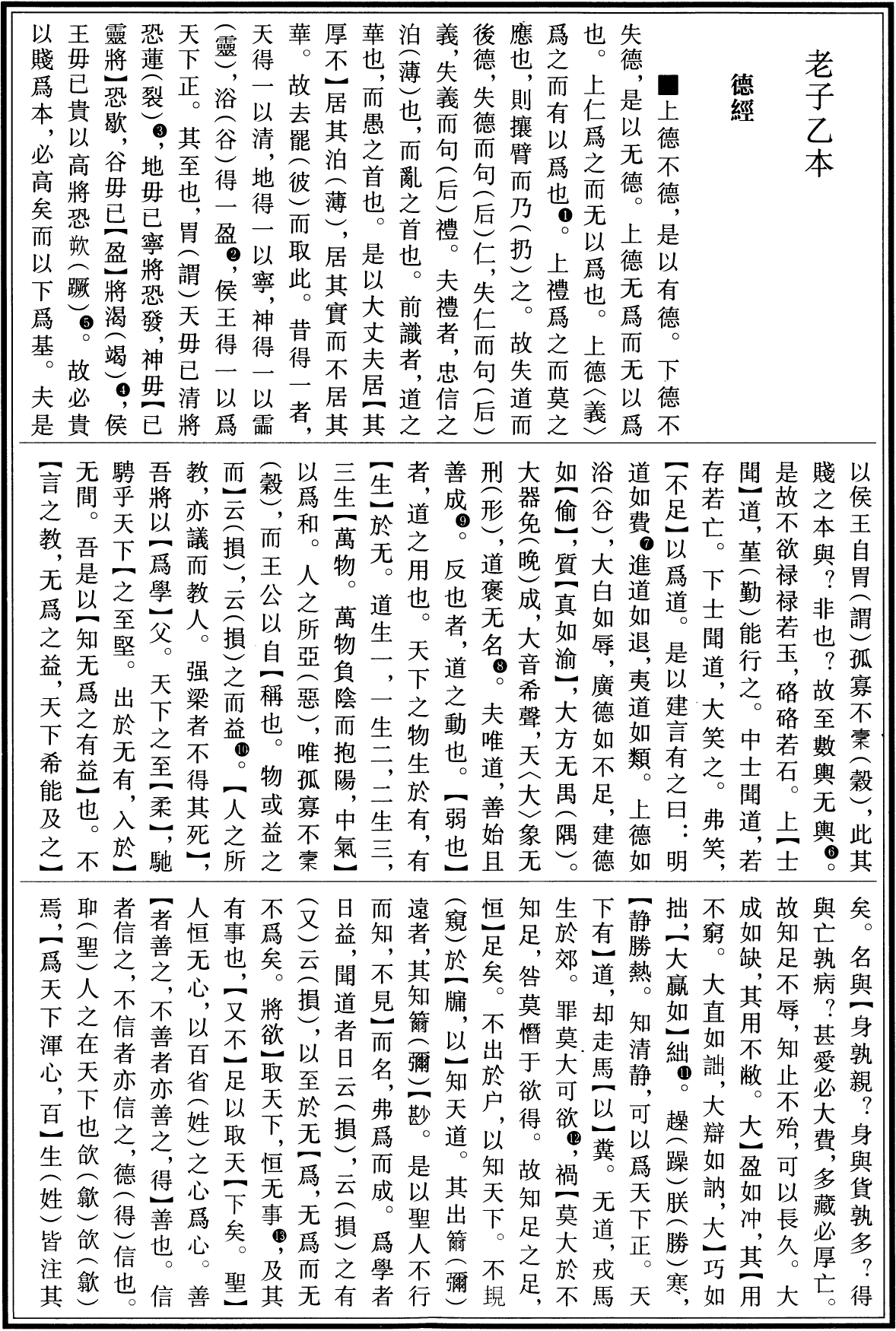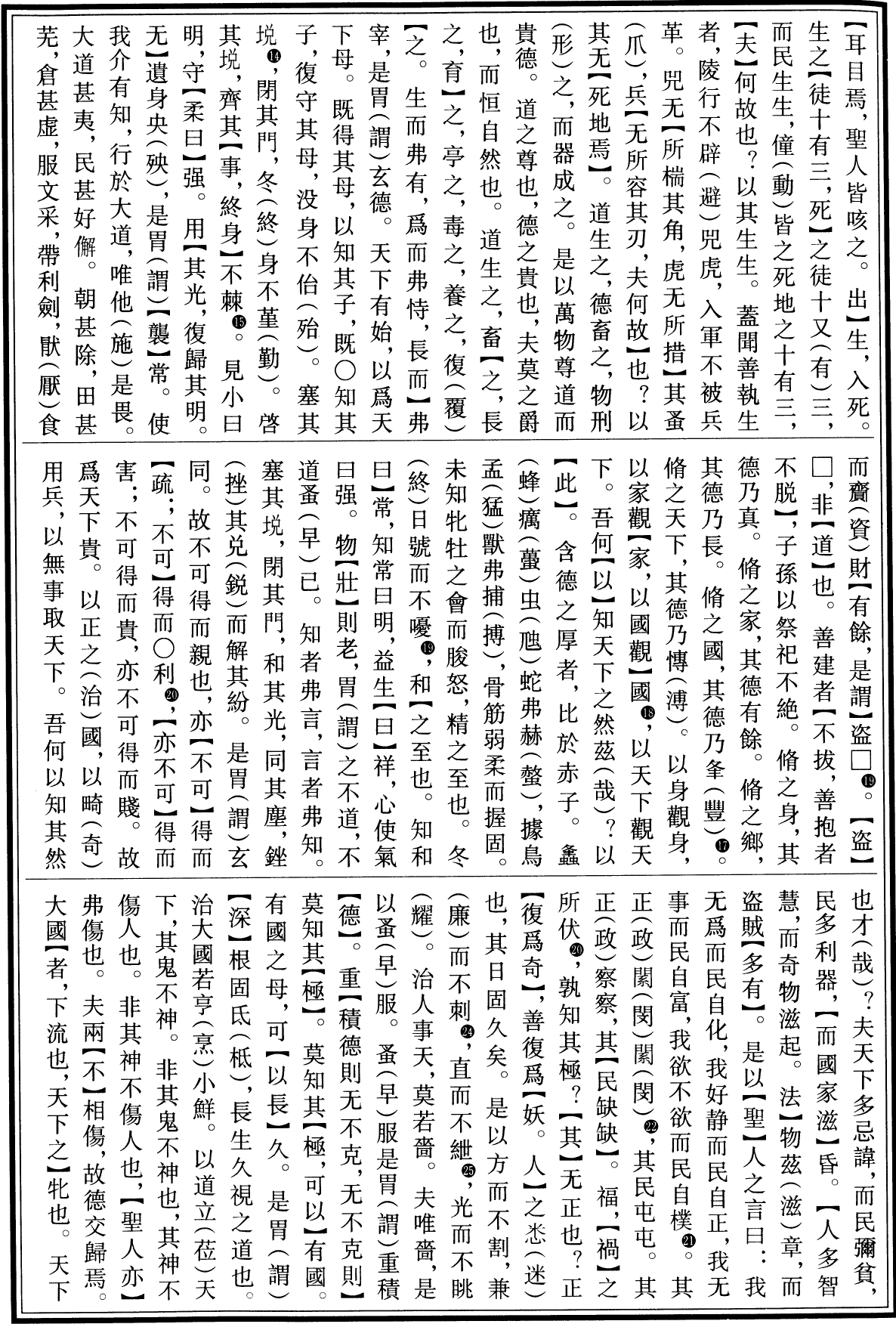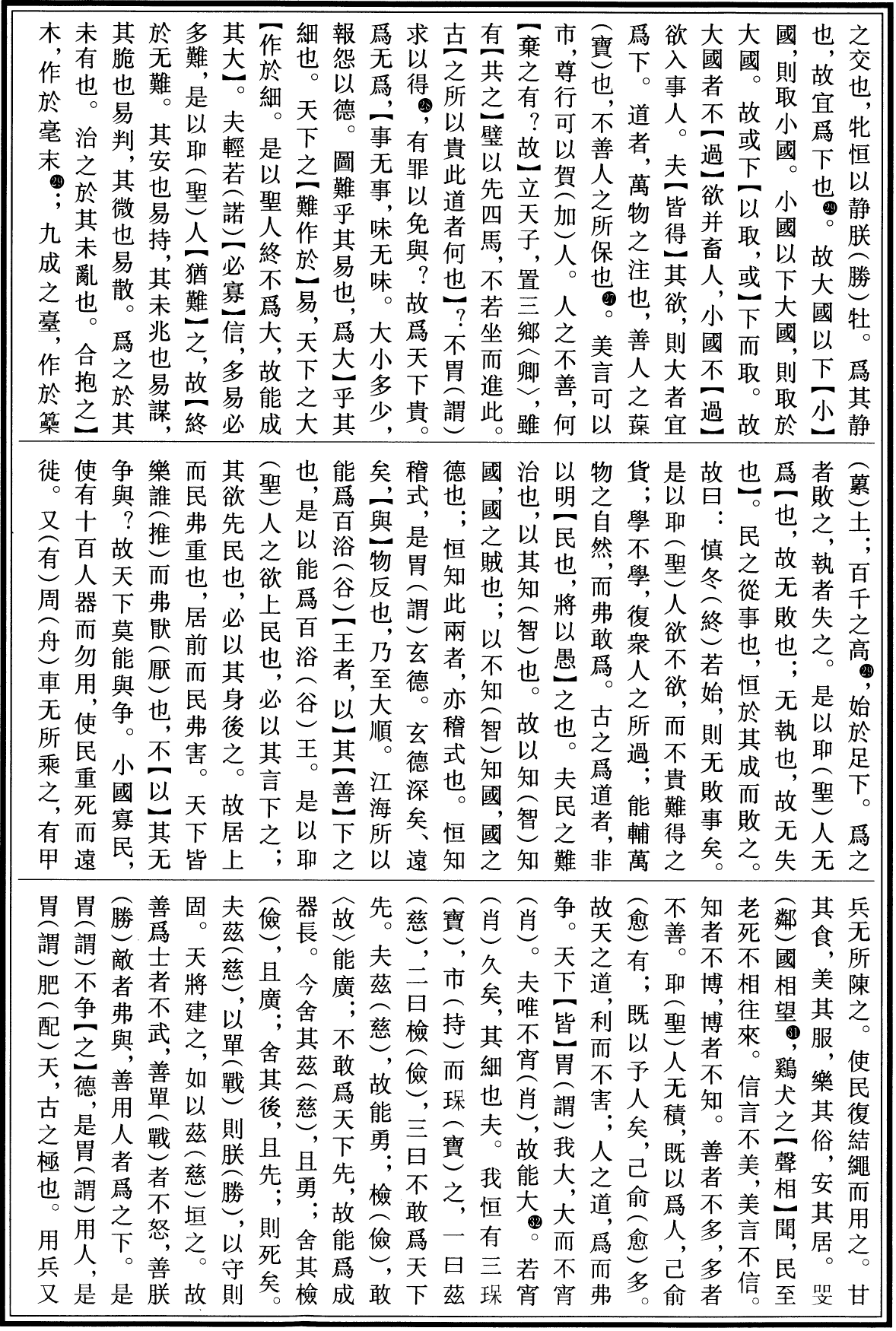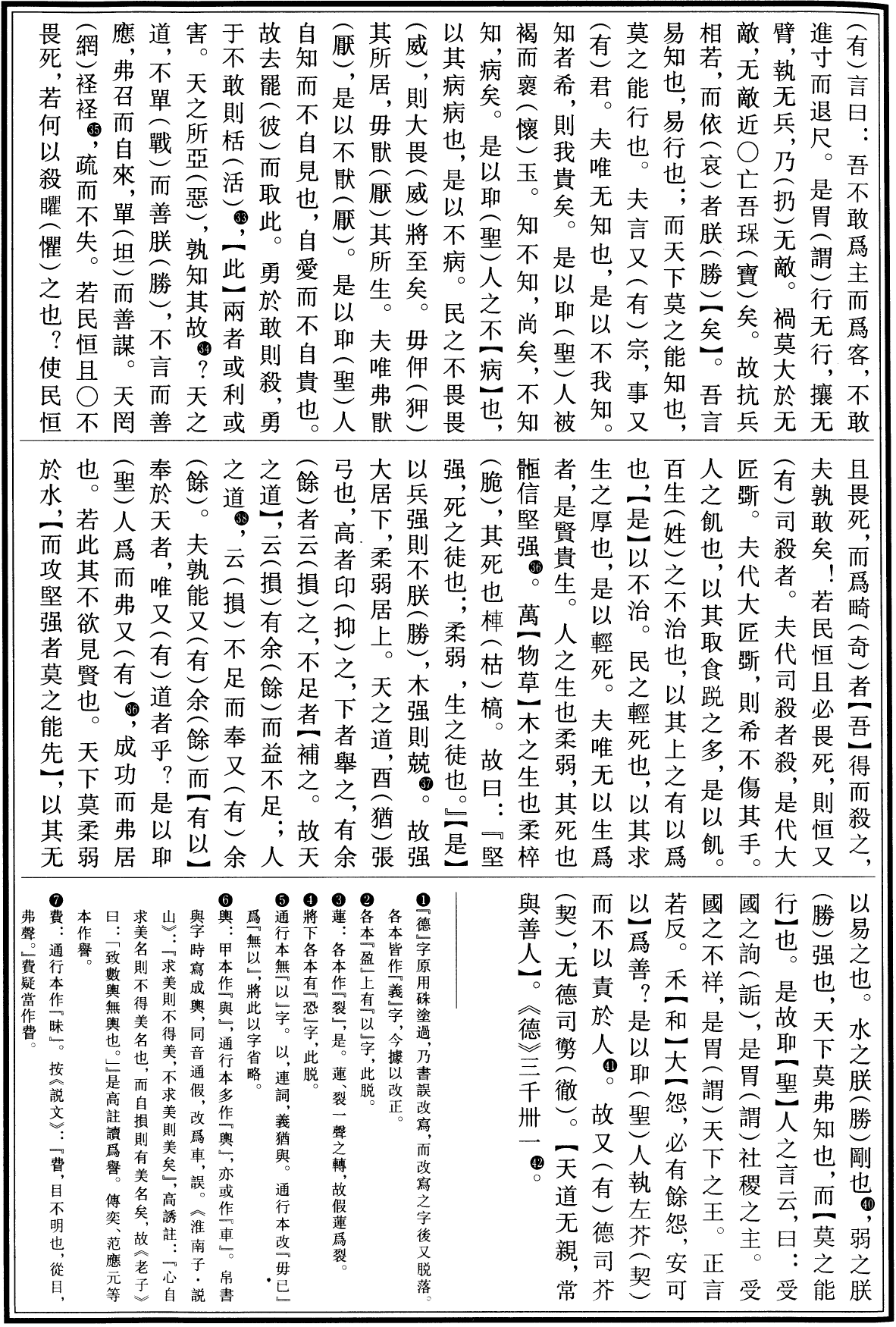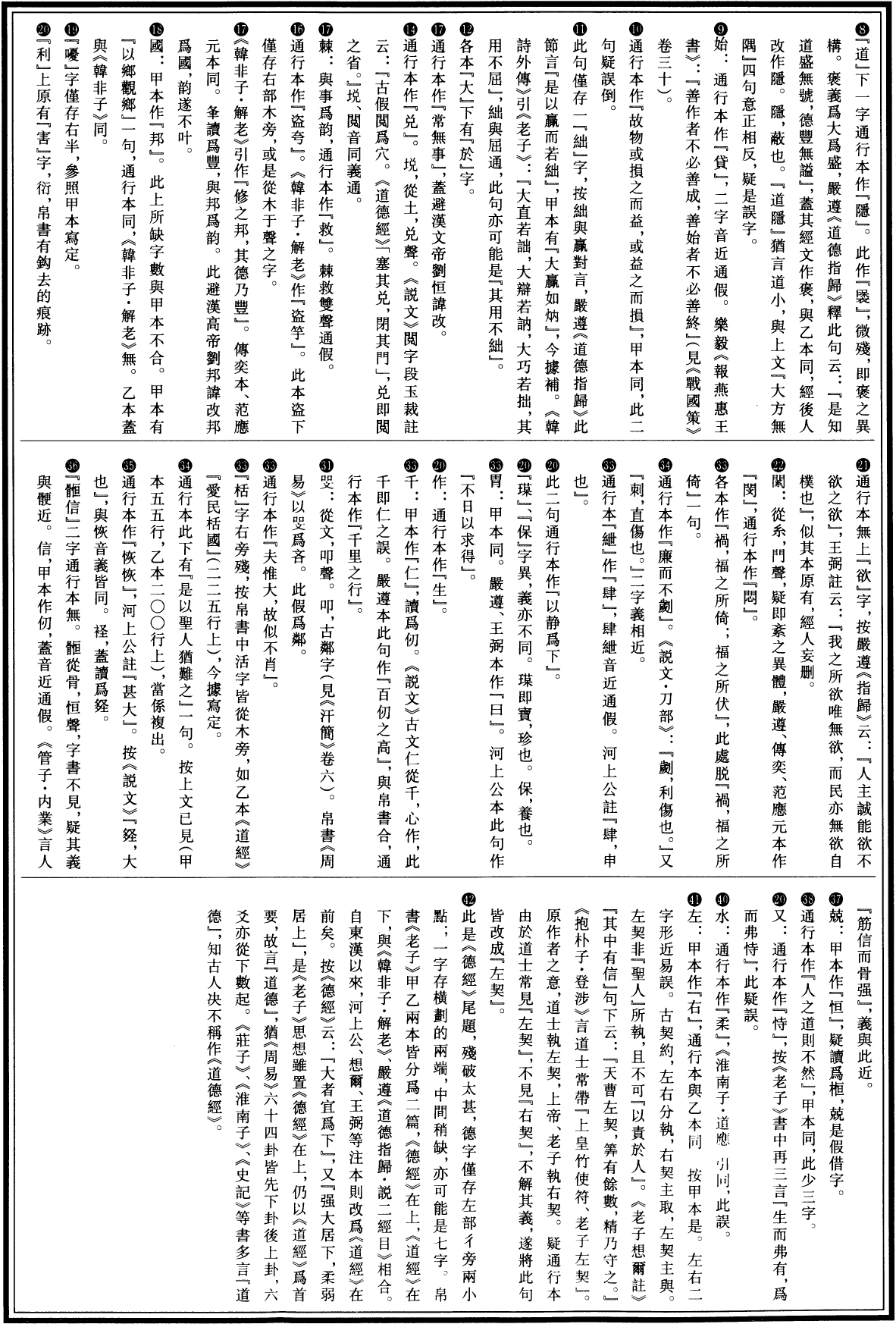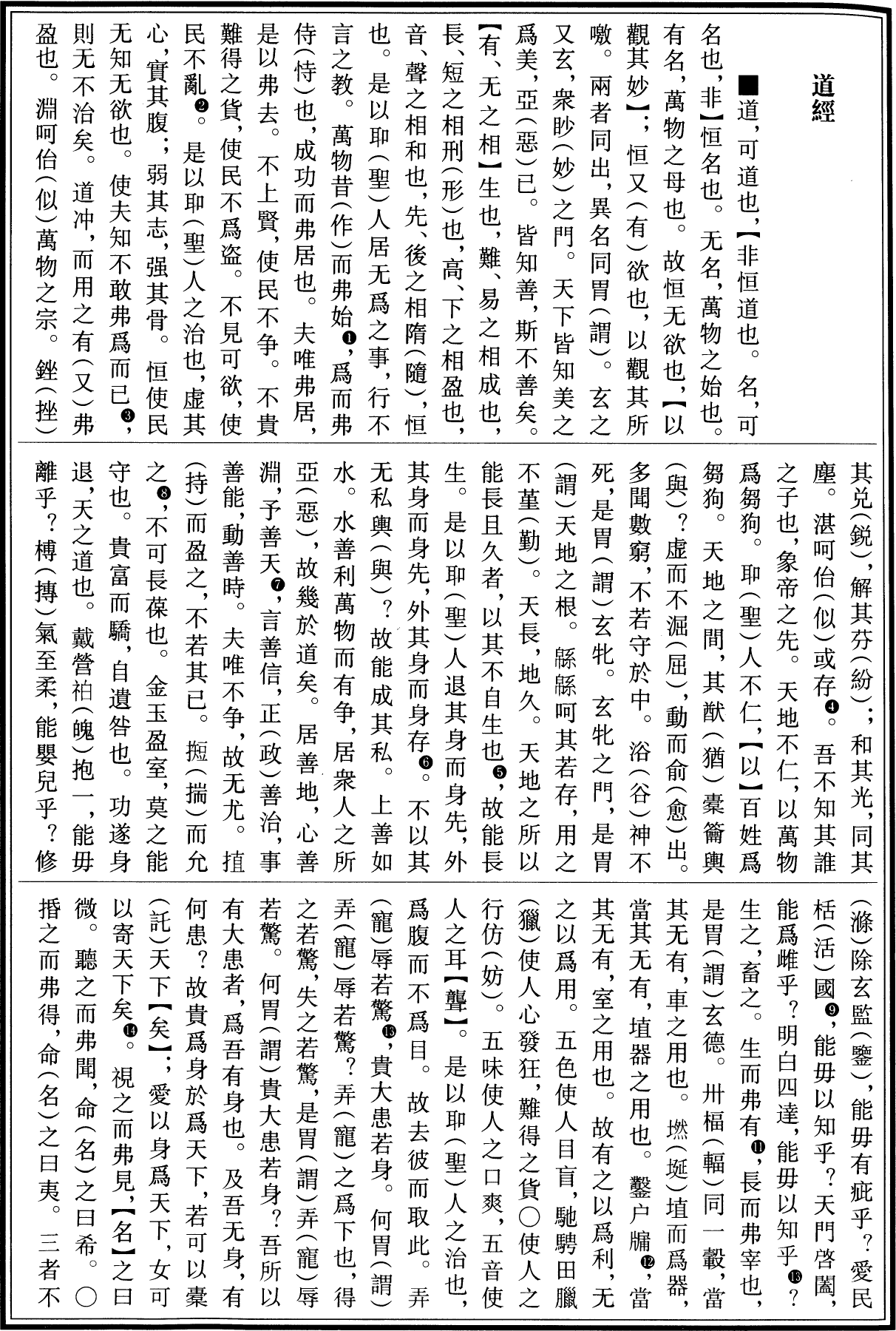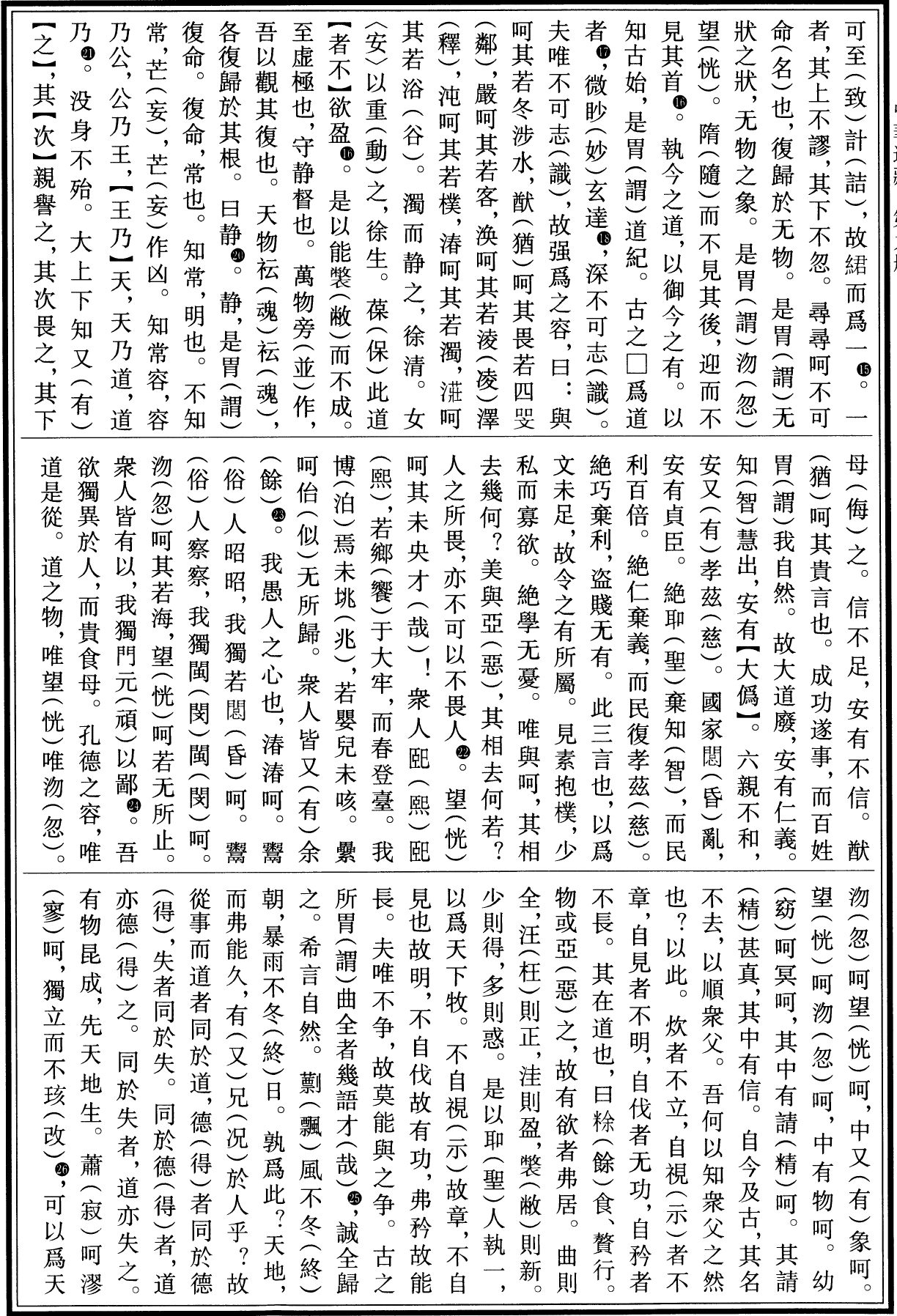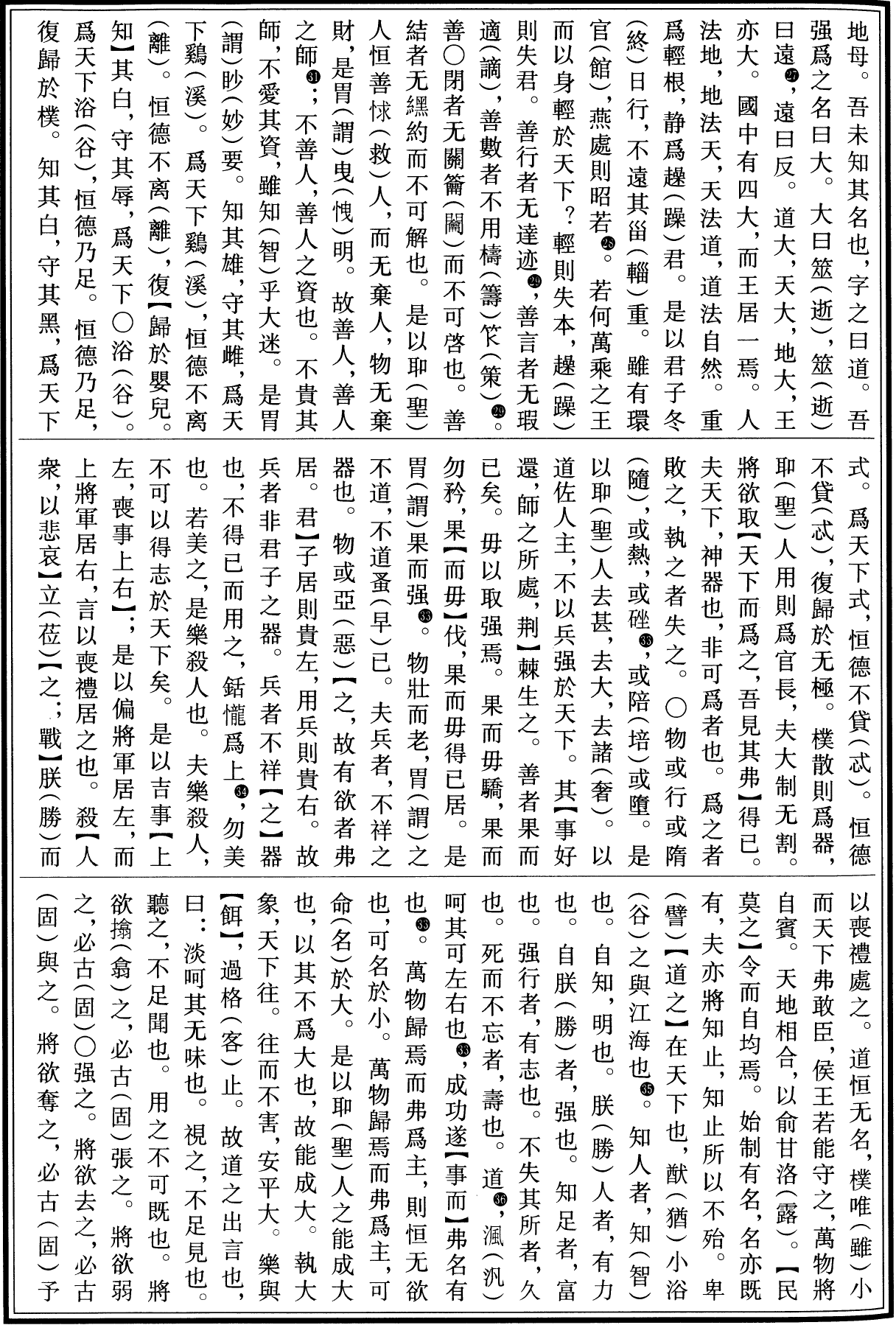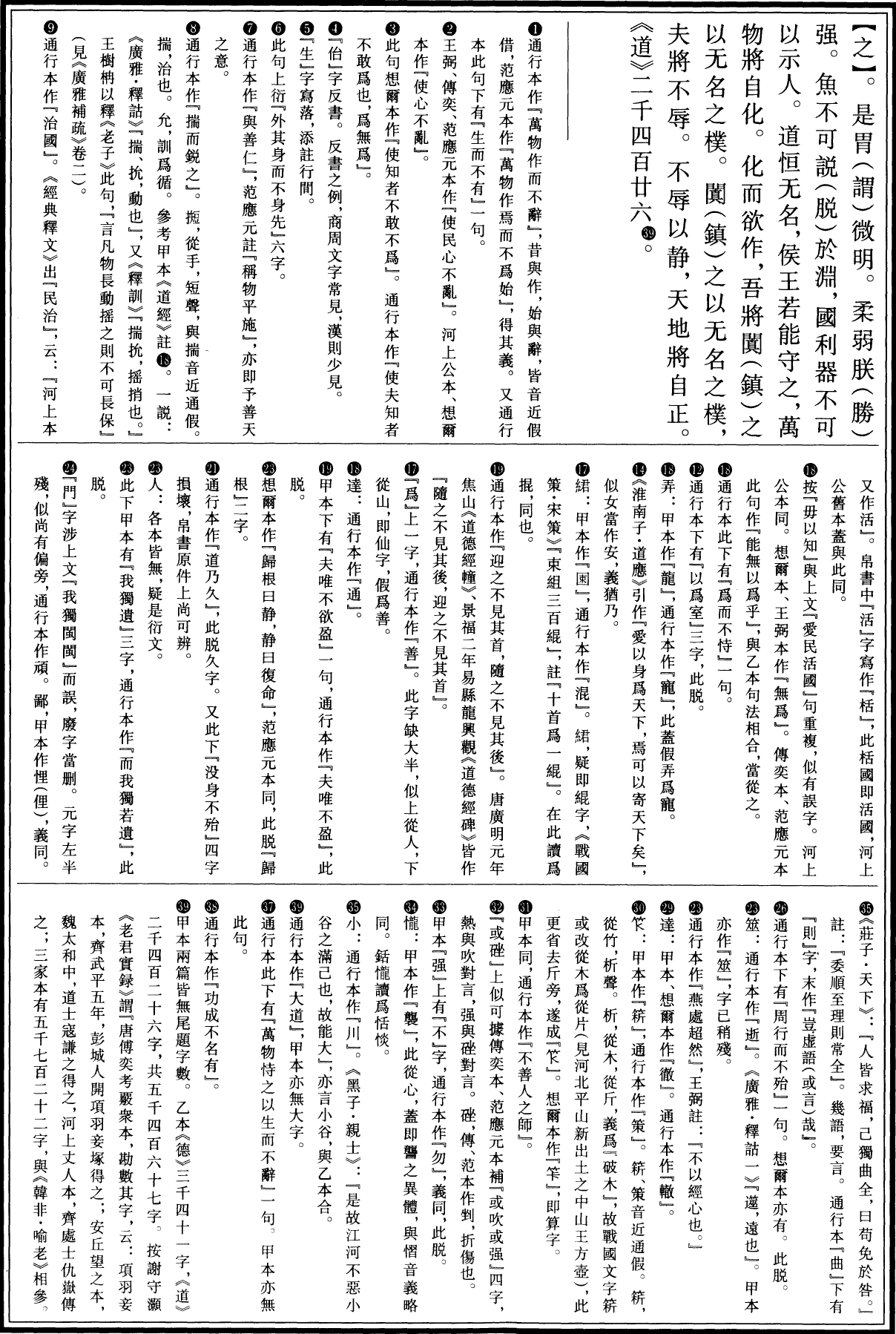The Dào (道) that can be told of is not an Unvarying Way. The names that can be named are not unvarying names. It was from the Nameless that Heaven and Earth sprang; The named is but the mother that rears the ten thousand creatures, each after its kind. Truly, ‘Only he that rids himself forever of desire can see the Secret Essences’; He that has never rid himself of desire can see only the Outcomes. These two things issued from the same mould, but nevertheless are different in name. This same mould we can but call the Mystery, Or rather the Darker than any Mystery, The Doorway whence issued all Secret Essences.
It is because every one under Heaven recognizes beauty as beauty, that the idea of ugliness exists. And equally if every one recognized virtue as virtue, this would merely create fresh conceptions of wickedness. For truly ‘Being and Not-being grow out of one another; Difficult and easy complete one another. Long and short test one another. High and low determine one another. Pitch and mode give harmony to one another. Front and back give sequence to one another’. Therefore the Sage relies on actionless activity, Carries on wordless teaching, But the myriad creatures are worked upon by him; he does not disown them. He rears them, but does not lay claim to them, Controls them, but does not lean upon them, Achieves his aim, but does not call attention to what he does; And for the very reason that he does not call attention to what he does He is not ejected from fruition of what he has done.
If we stop looking for persons of superior morality (Xián/贤) to put in power, there will be no more jealousies among the people. If we cease to set store by products that are hard to get, there will be no more thieves. If the people never see such things as excite desire, their hearts will remain placid and undisturbed. Therefore the Sage rules By emptying their hearts And filling their bellies, Weakening their intelligence And toughening their sinews Ever striving to make the people knowledgeless and desireless. Indeed he sees to it that if there be any who have knowledge, they dare not interfere. Yet through his actionless activity all things are duly regulated. The Dào is like an empty vessel That yet may be drawn from Without ever needing to be filled. It is bottomless; the very progenitor of all things in the world. In it all sharpness is blunted, All tangles untied, All glare tempered, All dust smoothed. It is like a deep pool that never dries. Was it too the child of something else? We cannot tell. But as a substanceless image it existed before the Ancestor.
Heaven and Earth are ruthless; To them the Ten Thousand Things are but as straw dogs. The Sage too is ruthless; To him the people are but as straw dogs. Yet Heaven and Earth and all that lies between Is like a bellows In that it is empty, but gives a supply that never fails. Work it, and more comes out. Whereas the force of words is soon spent. Far better is it to keep what is in the heart. The Valley Spirit never dies. It is named the Mysterious Female. And the Doorway of the Mysterious Female Is the base from which Heaven and Earth sprang. It is there within us all the while; Draw upon it as you will, it never runs dry. Heaven is eternal, the Earth Everlasting. How come they to be so? Is it because they do not foster their own lives; That is why they live so long. Therefore the Sage Puts himself in the background; but is always to the fore. Remains outside; but is always there. Is it not just because he does not strive for any personal end That all his personal ends are fulfilled?
The highest good is like that of water. The goodness of water is that it benefits the ten thousand creatures; yet itself does not scramble, but is content with the places that all men disdain. It is this that makes water so near to the Dào. And if men think the ground the best place for building a house upon, If among thoughts they value those that are profound, If in friendship they value gentleness, In words, truth; in government, good order; In deeds, effectiveness; in actions, timeliness – In each case it is because they prefer what does not lead to strife, And therefore does not go amiss.
Stretch a bow to the very full, And you will wish you had stopped in time; Temper a sword-edge to its very sharpest, And you will find it soon grows dull When bronze and jade fill your hall It can no longer be guarded. Wealth and place breed insolence That brings ruin in its train. When your work is done, then withdraw! Such is Heaven’s Way. When the intelligent and animal souls are held together in one embrace, they can be kept from separating. When one gives undivided attention to the (vital) breath, and brings it to the utmost degree of pliancy, he can become as a (tender) babe. When he has cleansed away the most mysterious sights (of his imagination), he can become without a flaw.
In loving the people and ruling the state, cannot he proceed without any (purpose of) action? In the opening and shutting of his gates of heaven, cannot he do so as a female bird? While his intelligence reaches in every direction, cannot he (appear to) be without knowledge? Dào produces (all things) and nourishes them; it produces them and does not claim them as its own; it does all, and yet does not boast of it; it presides over all, and yet does not control them. This is what is called The mysterious Quality (of the Dào).
There is nothing in the world more soft and weak than water, and yet for attacking things that are firm and strong there is nothing that can take precedence of it, for there is nothing (so effectual) for which it can be changed. Every one in the world knows that the soft overcomes the hard, and the weak the strong, but no one is able to carry it out in practice.
Therefore a sage has said, ‘He who accepts his state’s reproach, is hailed therefore its altars’ lord; to him who bears men‘s direful woes, they all the name of King accord.’
Words that are strictly true seem to be paradoxical. When a reconciliation is effected (between two parties) after a great animosity, there is sure to be a grudge remaining (in the mind of the one who was wrong). And how can this be beneficial (to the other)? Therefore (to guard against this), the sage keeps the left-hand portion of the record of the engagement, and does not insist on the (speedy) fulfilment of it by the other party. (So), he who has the attributes of the Dé (德) regards (only) the conditions of the engagement, while he who has not those attributes regards only the conditions favourable to himself. In the Way of Heaven, there is no partiality of love; it is always on the side of the good man.
《道德经 / Dào Dé Jīng》, 春秋时期老子 (李耳) 的哲学作品,又称《道德真经》、《老子》、《五千言》、《老子五千文》,
是中国古代先秦诸子分家前的一部著作。
道德经分上下两篇, 原文上篇《德经》、下篇《道经》, 不分章。
《道德经》文本以哲学意义之“道德”为纲宗,
论述修身、治国、用兵、养生之道, 而多以政治为旨归, 乃所谓“内圣外王”之学。
